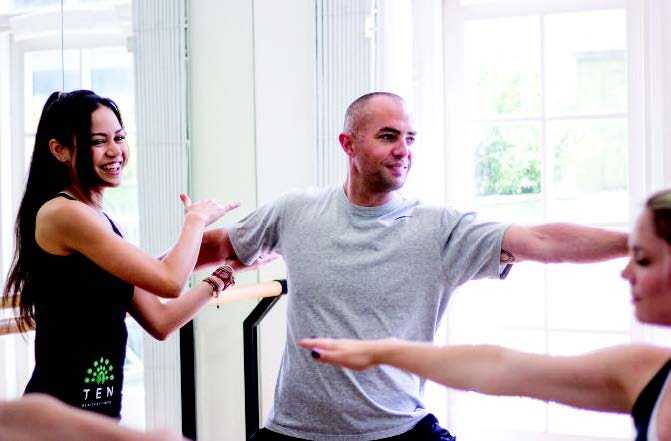
Ten is a boutique health and fitness provider that sits in the gap between the medical sector and the generic fitness market. The approach appears to be working with the group now boasting eight studios across London.
A personal journey
In 2005 managing director of Ten Matthews suffered what has come to be known as the ‘happy accident’, although it didn’t feel like that at the time.
“Severe whiplash, a fractured coccyx and fair amount of soft tissue damage significantly impacted on my quality of life. I was in pain a lot of the time, I lost a lot of mobility and wasn’t able to work for six months.”
Matthews was frustrated that GPs, physiotherapists and sports massage therapists, all in different locations, lacked any kind of ‘joined up’ approach to her recovery. So she joined a local rehab gym where she met her original business partner, David, a personal trainer who specialised in a dynamic form of Pilates.
“I’d noted this failing in the UK healthcare system while also identifying a gap in the market for a boutique Pilates studio that could offer both rehabilitation and more functional exercise. And as my sessions with David progressed, I personally experienced the difference this kind of approach could make,” she says.
"By combining my marketing background with David’s fitness expertise, we realised we could make our business idea a reality. We opened our first studio in Notting Hill in August 2007.”
Dynamic Reformer Pilates
Ten’s core product offering is Dynamic Reformer Pilates. Like traditional Pilates, Dynamic Pilates is designed to readdress the body’s natural balance through a series of exact, controlled movements. It focuses on the core muscles in the waist and lower back area to improve strength, flexibility and posture, keeping the body mobile and helping to reduce risk of injury.
“It’s a more intense and dynamic programme, designed to slim figures, improve posture and build lean, toned muscle. The movements flow together seamlessly, and functional exercises are integrated to load the larger muscles and exercise the cardiovascular system. We focus on duration of the exercise to allow for greater muscle fatigue and intensify the movement of the larger muscle groups to create a total body workout,” says Matthews.
Trainers go through Ten’s industry accredited in-house academy and focus on hands-on correction, precision and control whilst working clients hard. Class sizes are limited to 10 to ensure a personal experience.
Circle of care – a holistic approach
“Our concept is all about sustainable health and fitness. We have in-house physiotherapists and massage therapists, so we can offer a holistic, ‘circle of care’ approach. Trainers and therapists work together to help a client through every stage of their progression, whether that’s improving their recovery time post-injury or helping them to achieve a specific fitness goal,” says Matthews.
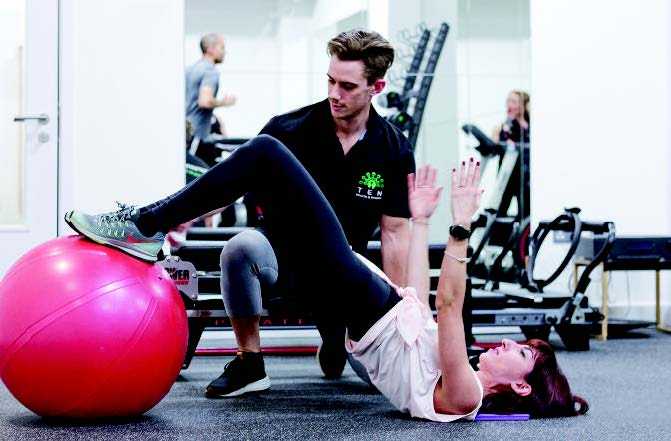
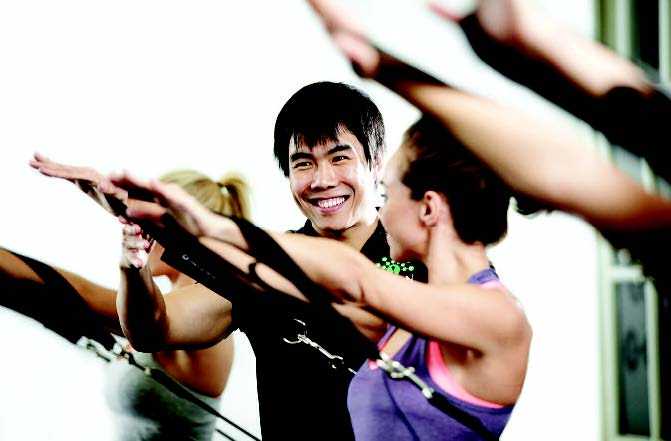
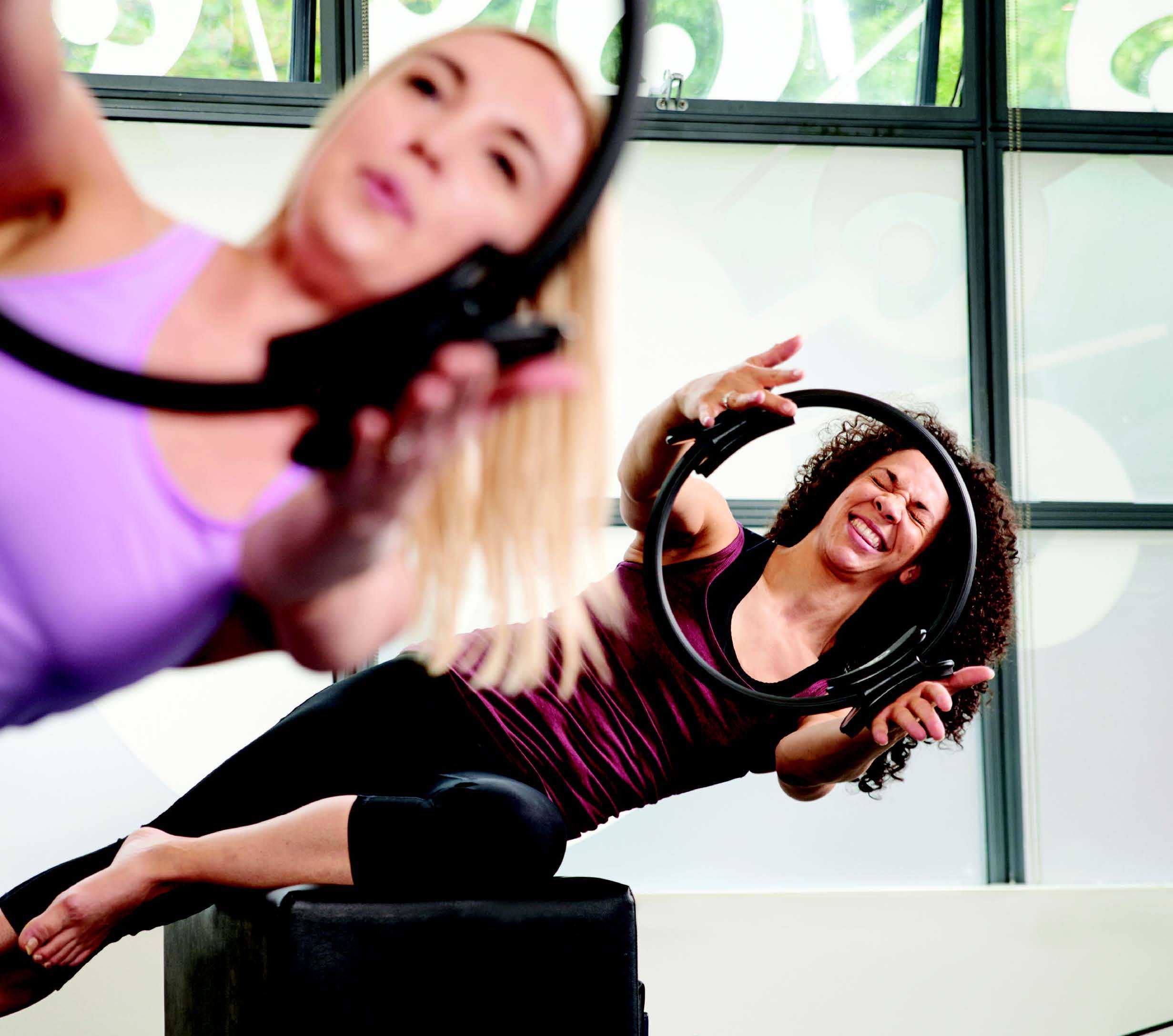
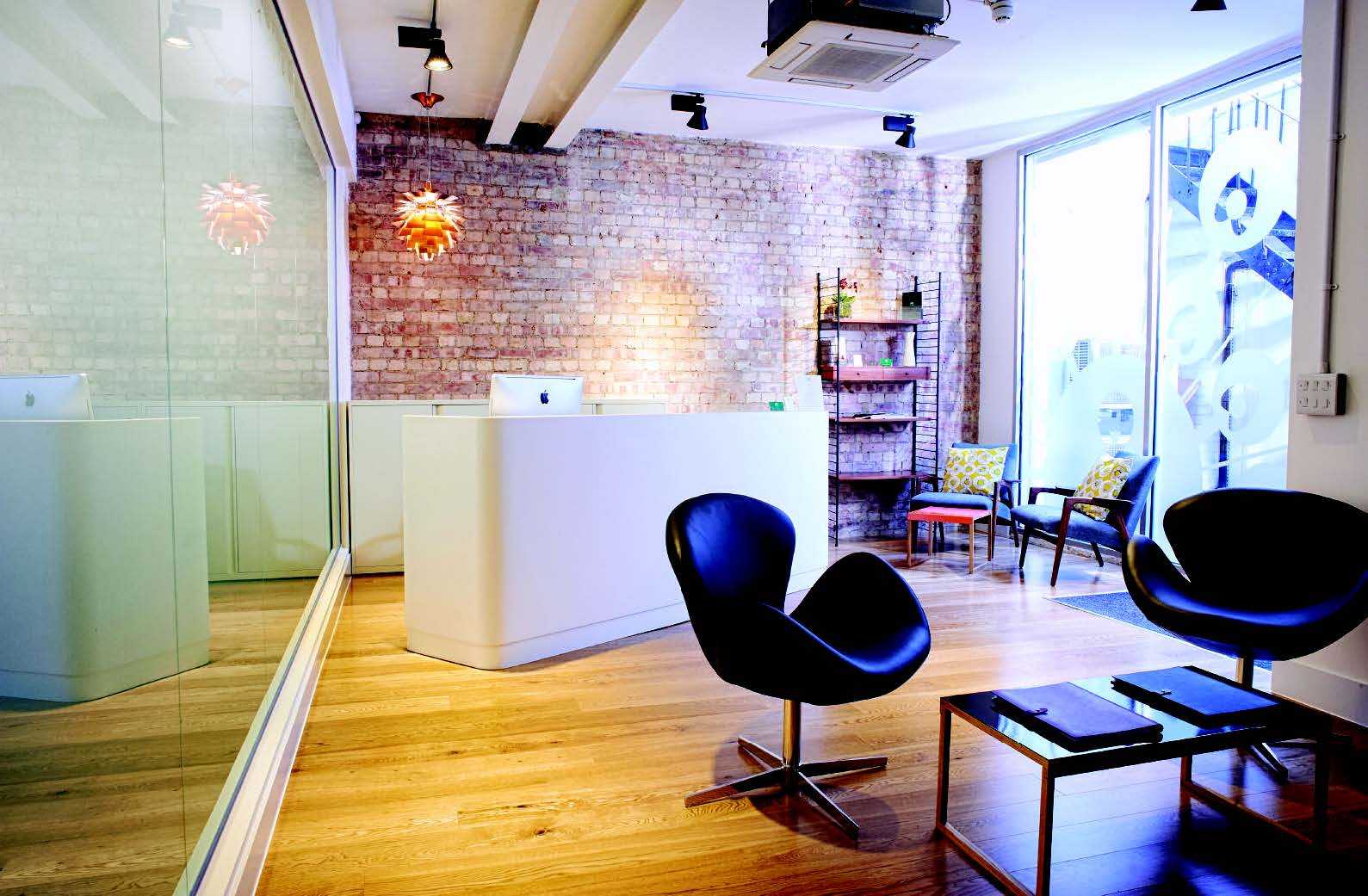
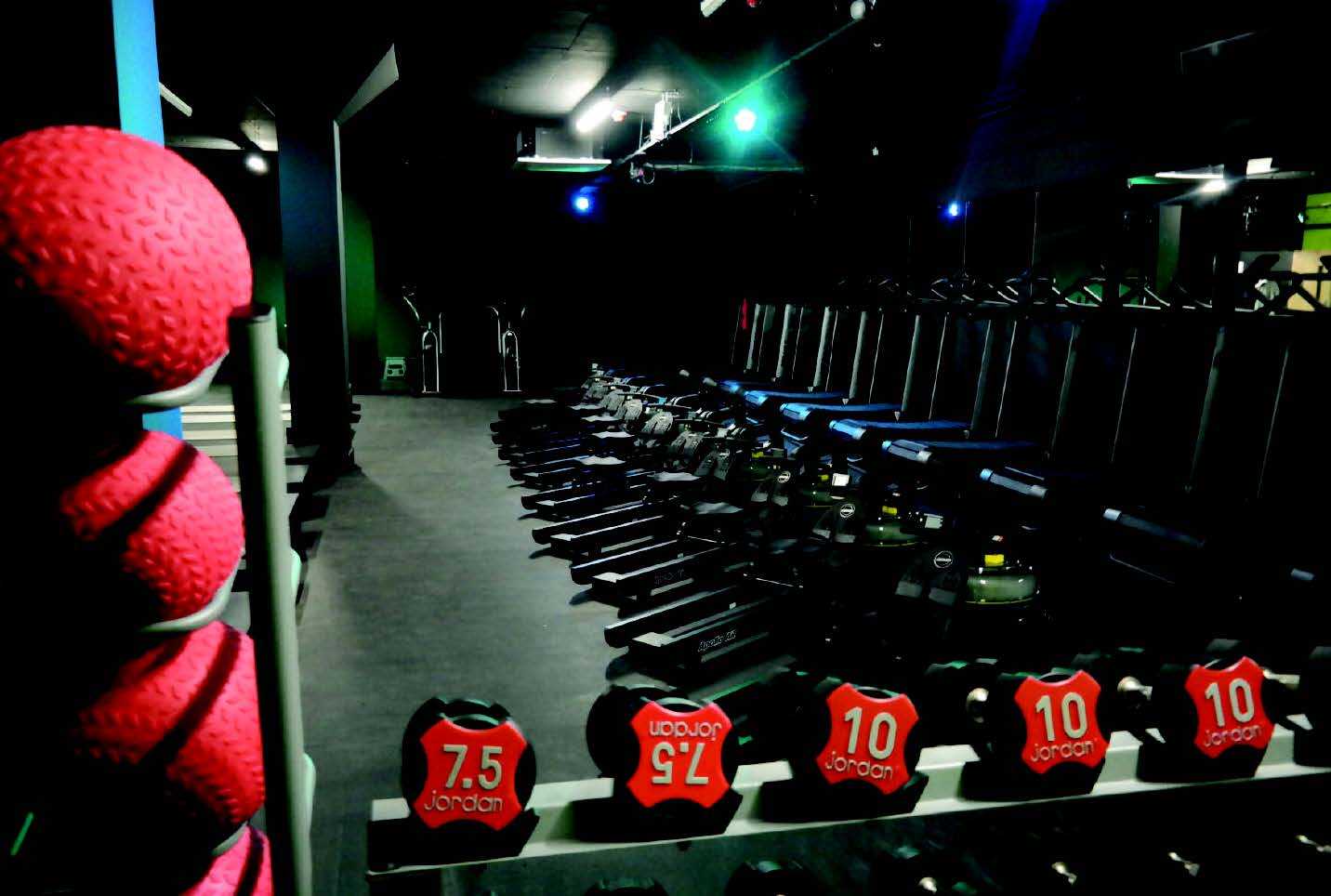
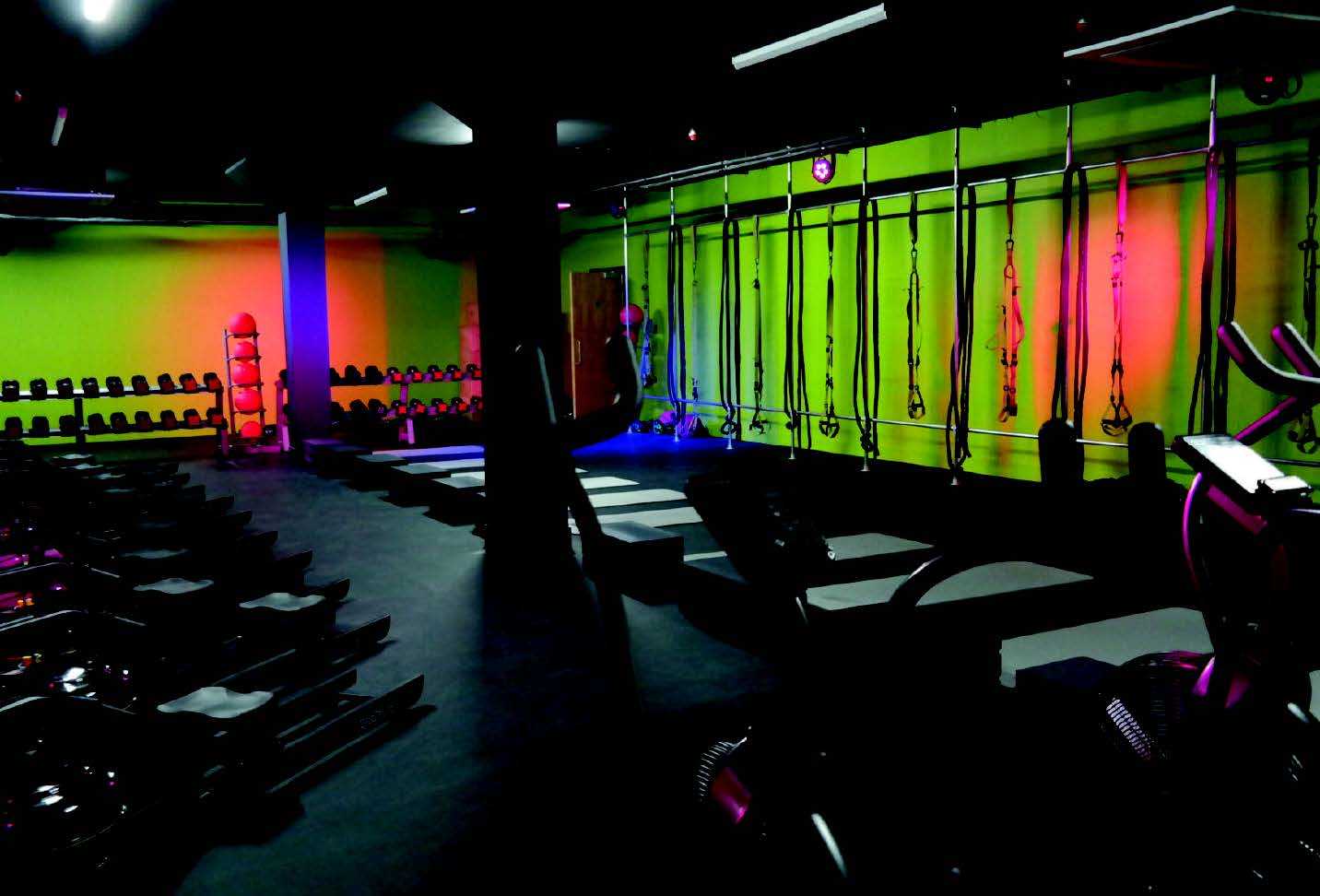
Ten offers a personal experience
When it comes to traditional gyms, Matthews feels it’s all about selling memberships - not driving fitness or health. “Through my own experience I attended a gym once, got tied into a year’s contract and they didn’t contact me once” she says.
By contrast, Ten operates a pay as you go system to give clients flexibility.
“For Ten it’s all about our relationships with our clients and our staff. We are in the business of making people feel good each and every day to ensure they come back. Our service and training level is far higher than you would get at many gyms.”
“We always have a fully staffed reception so clients are welcomed in person, rather than being expected to swipe in and hang around in a corridor waiting for their class or session to start. And we also provide fully-stocked changing rooms and showers, which are essential for clients who need to go back to the office or on to an evening out after their session" says Matthews.
The studios
Sites are generally 2,400 to 3,000sq ft in size with a core offer of a reformer Pilates studio large enough to hold 10 reformers, treatment rooms and a separate area for personal training, one to one Pilates sessions and a gym-based physiotherapist.
Some studios also provide another space for secondary classes such as Yoga, HiiT, Barre and TRX. A carefully-curated retail product range including workout wear, physio products, hair and skincare and healthy drinks and snacks is also on offer.
A 'similar but different' design philosophy
Pilates studios, PT rooms and therapy rooms have a strong brand feel but with design differences in reception areas and changing rooms.
“A cookie-cutter approach to the design would be boring, especially as many clients like to train at two or three different studios” says Matthews. “We stay abreast of trends and developments, but don’t follow the latest fashions in interiors - that just means we’ll be unfashionable in a couple of years’ time. Instead the feel of the area or the architecture of the building we’re in inspires us - be it exposed brick or ironwork.”
However, all studios are light, bright and airy. “We’re all about precision, form and quality of movement, so that typical boutique fitness ‘workout in a nightclub’ vibe doesn't work for us. It’s important that we offer the same client experience in all studios. That’s driven both by the physical environment and the people, which includes a warm, friendly and genuine welcome - if you’re a regular you should expect to be greeted by name.”
'Beat Theory Fitness' - another boutique health & fitness studio launch
Group personal training brand, Beat Theory Fitness, has opened its first franchise site in Waltham Abbey, London with plans to open further franchises this year.
The brand is owned by Riccardo Scala, former personal trainer to the stars in California, who has two clubs in Scotland. Scala’s aim was to create an affordable boutique concept, having seen the burst of the boutique sector in California first hand. It offers heart rate-monitored, high intensity interval training (HIIT) designed to stimulate metabolism and increase energy, whilst providing group support and accountability.
The first franchise club is owned by Leon Chee-a-tow. He says: “Beat Theory Fitness is a unique brand offering heart rate monitored sessions so clients can track their progress every step of the way. We also have Assault AirRunners, from Precor, which help us to stand out from our competitors. The simplicity of the treadmill and its manually driven belt means you jump on and start running with no buttons to press and no frustration waiting for the belt to start up.
Beat Theory Fitness can cater for up to 40 people in any one 45-minute class. Along with the Assault AirRunners, dumbbells, slam-balls, TRX straps, battle ropes, suspension units, step up boxes, ab rollers and rowing machines are also used. Prices range from £59 -£119 a month for a minimum three month contract, which includes a Myzone heart rate belt. Alternatively users can pay as they go.
Global Boutique Trends Report 2018
THE ukactive Research Institute collaborated with zingfit to share the latest global boutique trends, both in London and further afield. Using data from the zingfit scheduling system in London, New York, Mexico City and Los Angeles, the report looks at a number of key factors which shape the sector.
Top line findings include a clear gender bias towards female customers with all four locations showing a big skew in the age distribution of customers towards the younger age groups. In fact, each city has less than eight per cent of customers aged 45 and over.
The customer data from the London studios shows that boutique fitness transcends national borders, with visitors from across the globe taking part in classes across the capital. Ease of booking and lack of membership commitment make boutique classes appealing to those who live in London and those passing through.
Looking at how customers are booking their classes shows that one in four classes in London is booked as part of a package of 10 classes or more. One-off classes make up 11 per cent of all bookings, showing the power of boutiques to foster a strong sense of loyalty as customer switch from one-off classes to bulk class purchases. ClassPass bookings make up just under one in five bookings (18 per cent), with introductory offers for new customers counting for one in 10 bookings (11 per cent).